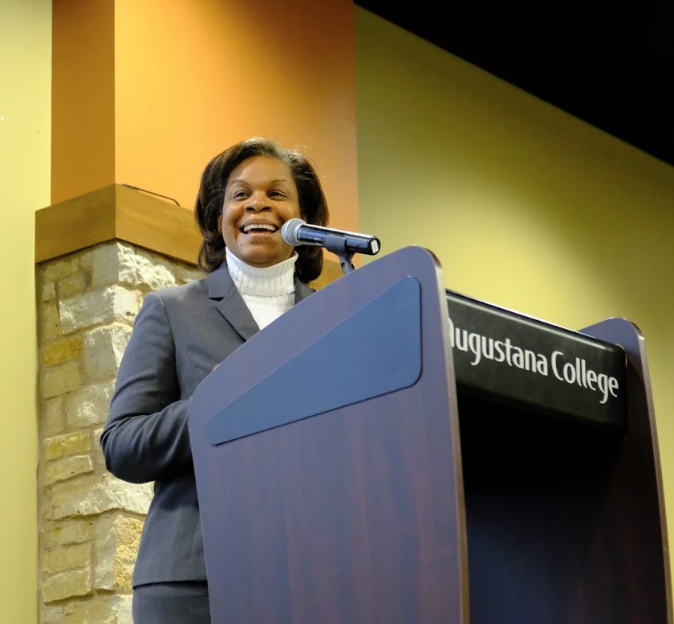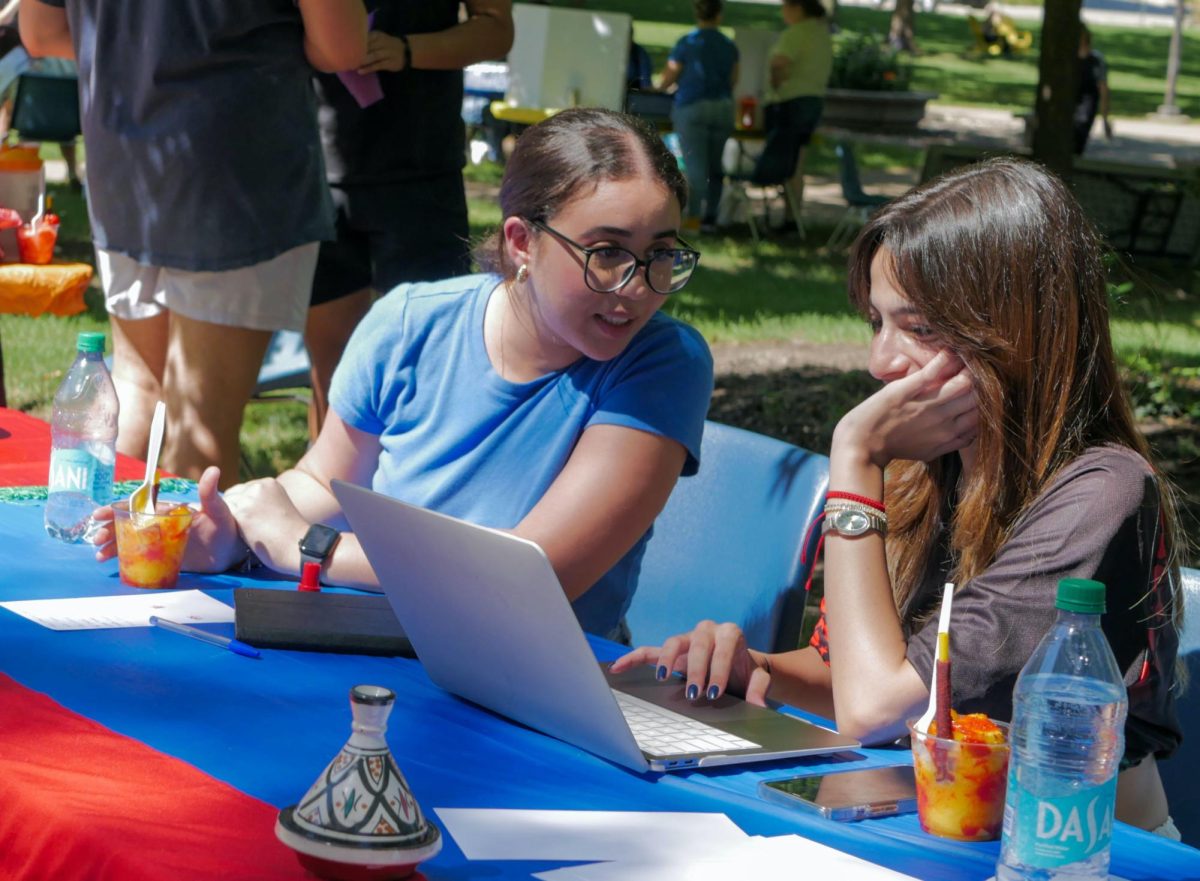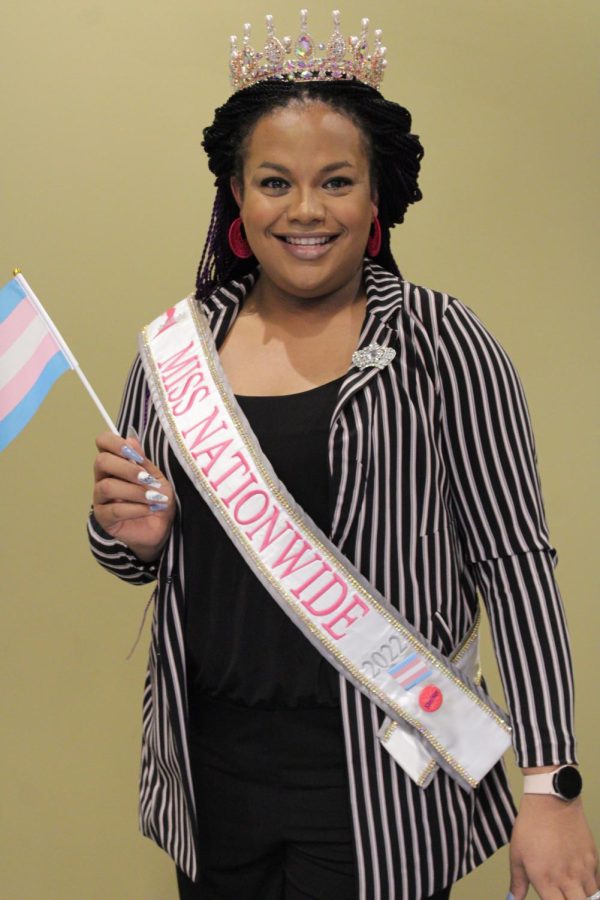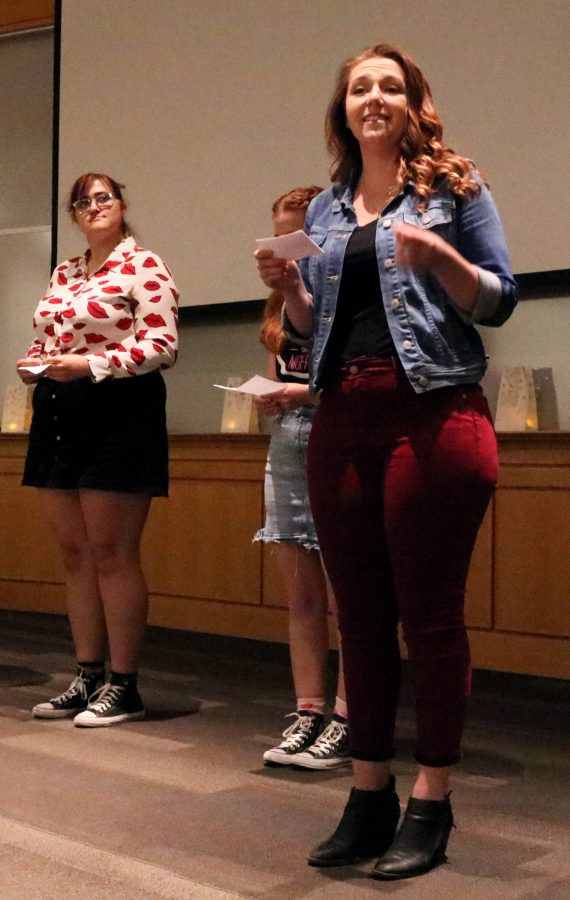Dr. Monica Smith, Vice President of Diversity and Inclusion, delivered the third Martin Luther King, Jr. (MLK) keynote address in the Gavle rooms on Monday, Jan. 21.
After 14 years of lively choral celebration in Centennial Hall and three years of a keynote speaker on Martin Luther King, Jr. Day, this was the first time the address was delivered by an administrator dedicated to diversity and inclusion, a position longly desired by students.
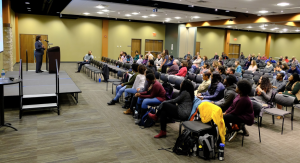
But on a federal holiday with most schools and banks closed in celebration, did Augustana do enough?
Smith’s speech was centered around two lessons we might be able to extract through the fullness of Dr. King’s legacy and continuing struggle: speaking truth about our collective history and pursuing justice by practicing active anti-racism.
“Of those who came before him and after him, he’s probably the one who is the most appealing. The way he approached all of this, people were able to get onboard with. He was nonviolent. When you’re standing there and you’ve got dogs and firehouses and horses and billy clubs beating you and you do nothing in the middle of that, that shows a resilience and a conviction of spirit that people cannot argue with,” Smith said.
According to Smith, King was so effective because he studied under Gandhi and was able to quote from religious philosophers like St. Augustine and Thomas of Aquinas. From there, he was able to effectively use nonviolent demonstrations to protest oppression.
Smith said, “He wasn’t yelling. He was saying despite what you’re doing, I’m going to tell you what justice really looks like. Not only that, I’m going to model it through nonviolence. I’ll go to jail for my convictions. And he did.”
Through spoken word, members of Dat Poetry Lounge performed a piece exploring the crossroads of King as both loving minister and revolutionary questioning existing power structures.
“His mind and what he was thinking about – the black experience and what the negro should be able to do in the United States is so far away from what the white leaders at that time were thinking. There was now way blacks could be equal with whites. There was just no way. You cannot sit in the same places; you cannot intermarry; you can’t drink from the same water fountains. Those were his radical ideas,” Smith said.
Lydia Lara, senior and creator of Dat Poetry Lounge, said honor King through their presentation aligned with the group’s goal of making space for people to call out injustice through art.

“The goal of our poem was to embrace Dr. King’s true message, not just the idea of Dr. King only being loving. He was also a man who fought hard against injustice and in a way that didn’t ignore the real issues. He addressed what the real issues were in society; he was the light and the love of a society that was falling apart,” Lara said. “Now, we see our society falling apart and seeing this love happen in other places. Because we see who he was, we’re now able to fight for what he stood for.”
For her, the point of the day off from school is to contemplate the Civil Rights Movement’s sacrifice and our place in challenging oppressive social structures like King did.
“We just started doing the bare minimum. I think that what we can do is acknowledge this day as a day for social justice. Going to classes is part of what Martin Luther King Jr. wanted us to be able to do – pursue our education,” Lara said. “But besides that, I think there’s a lot more learning we can do in terms of his message that he wanted us to learn as people in society and fight for on this day in commemoration of him.”
According to Dr. Taddy Kalas, professor of French, school attendance during MLK Day has been a point of contention for years.
“It’s really tricky. We try hard. The debate about whether or not to cancel classes for MLK Day is a heated one we’ve had at many faculty meetings. As I said to my students, there’s no faculty member here who doesn’t care about MLK Day. But some people feel like just giving everyone a day off is not the way to respect him,” Kalas said.
Some faculty argue that though the school offers speeches and celebrations to honor King, more of the seats in the room would have been filled if the day’s observances were required through Symposium Day or service projects.
“I am frustrated – we could have better attendance here if they announced it earlier this term,” Kalas said. “I would have written it in my syllabus or required it, but we got the information a week or two ago. You can’t just spring in a required event.”
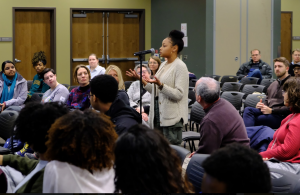
Though Augustana’s celebrations of Martin Luther King, Jr. Day have grown over the past few years, Smith says any upcoming plans are up to the school.
“Augustana is in our third year of this kind of celebration, and I’m sure that what happened here was different than what happened in previous years. I think that we’re building and we’ll figure out if it’ll continue to look like this next year or in five years. But we’ll figure out what feels right and what’s a good fit for all of us in the future.”
Montse Ricossa contributed to this story.








































































































